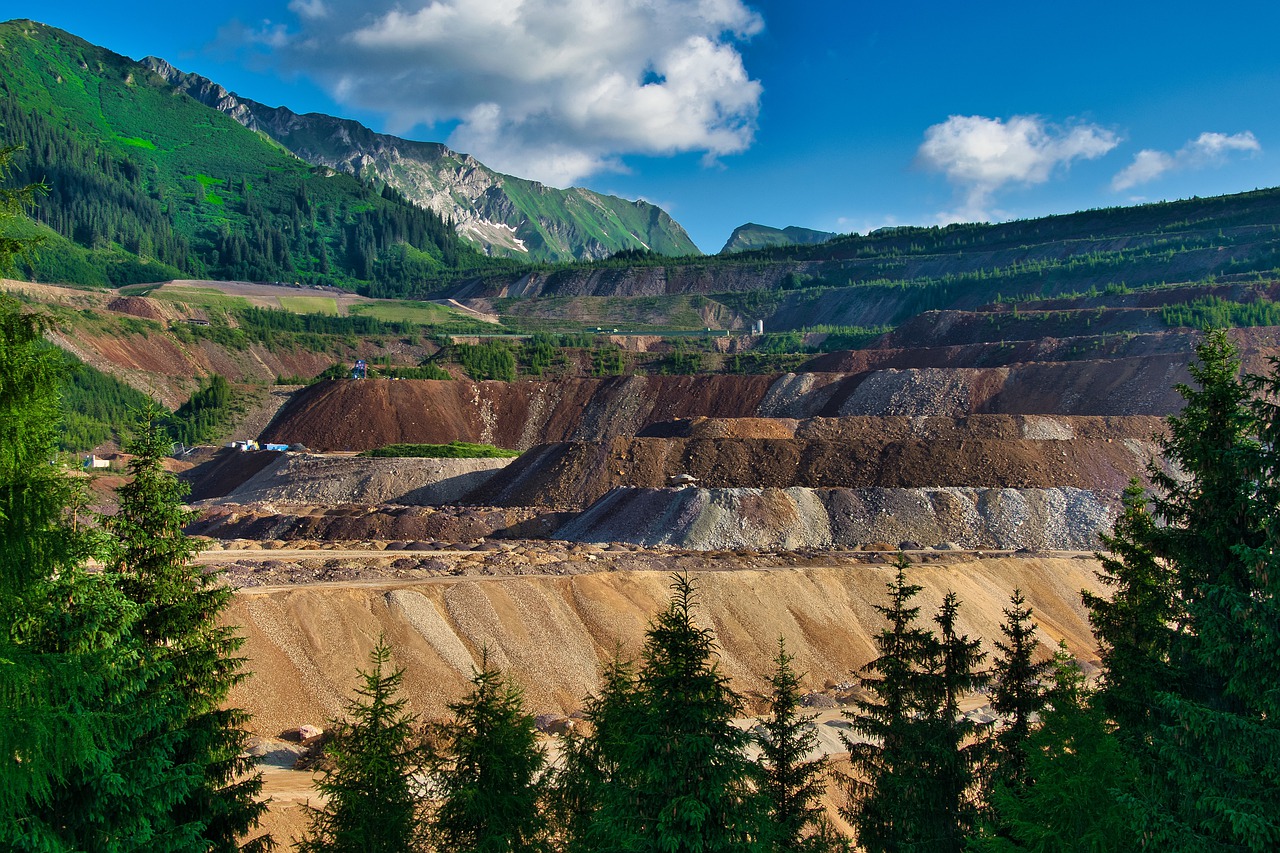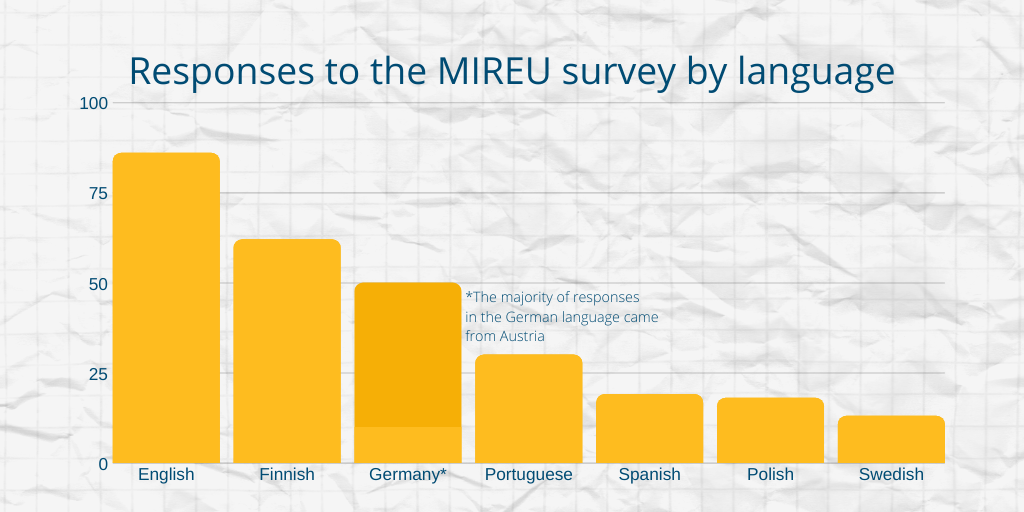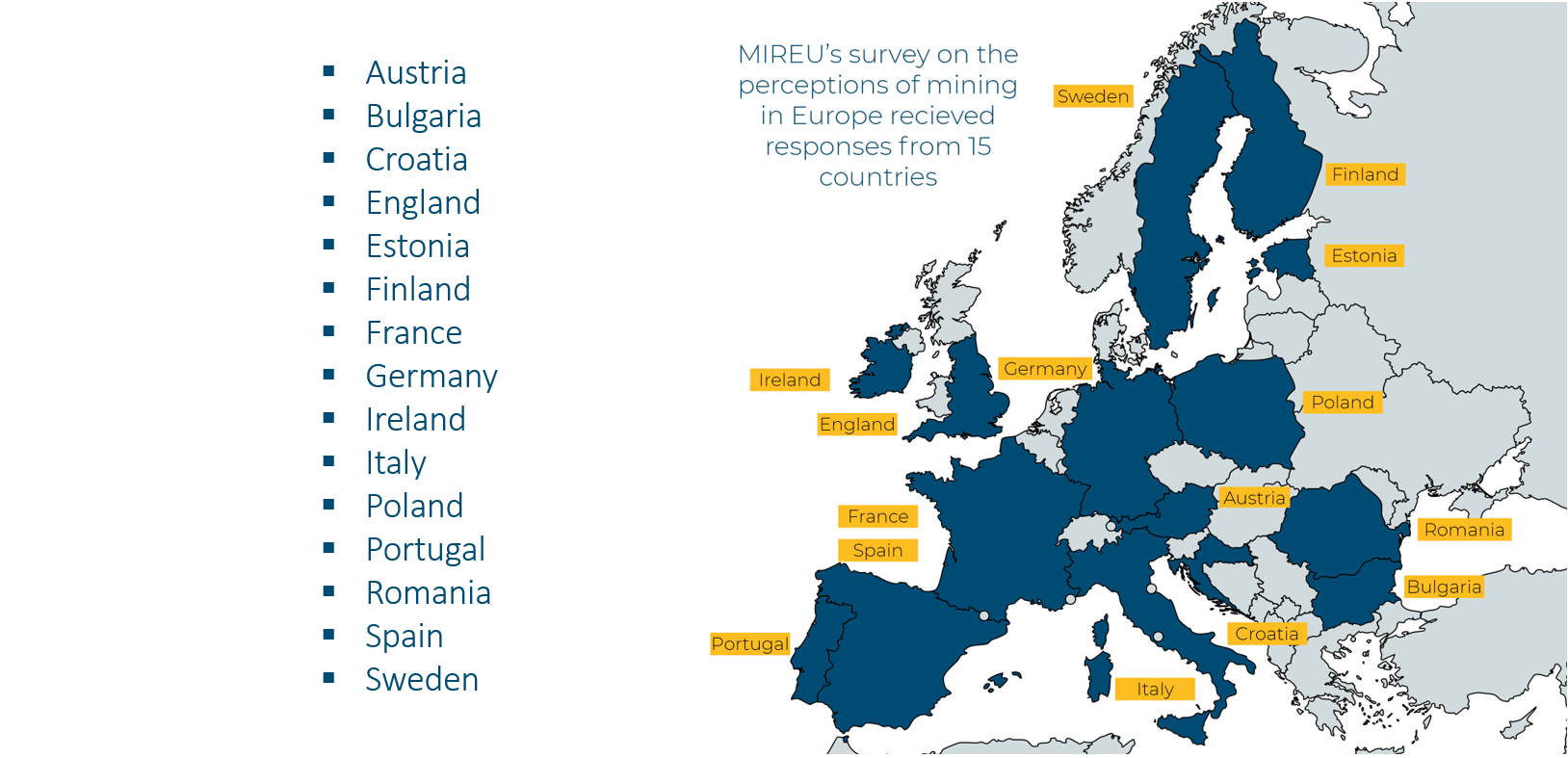
Survey on the perceptions of mining in Europe – preliminary results
- Thu, 23/01/2020
Understanding people's perceptions of mining - their thoughts, feelings and expectations - is a key component of the MIREU project. Peoples’ values underlie these perceptions and therefore influence not only thoughts, feelings and expectations, but decision-making as well. The aim of the survey is to, within Europe, more clearly understand the relationships between individual personal values, feelings about mining, and the most important conditions for the acceptance of mining, or if indeed, mining can be accepted at all. As the MIREU project is supposed to address both mining and metallurgy, but the two activities appear to be viewed quite separately in the general public’s mind, several questions were included asking about peoples’ attitudes toward metallurgy specifically.
It is a targeted online survey, initially written in English and then translated into six other languages, and sent to people in Europe that have some knowledge about and/or experience with mining. A snowball sampling method is used where the survey is first distributed to MIREU partners and others more loosely involved in the MIREU project, and these people were in turn asked to forward the survey to their personal and professional networks.
The survey was divided into two sections: Part A includes general questions about values using a social science method called the Schwartz Scale. This method has been tested for decades and shows there are universal values that are recognised throughout every major culture. Part B shifts the focus to mining and includes questions on general perceptions and expectations of the mining and metallurgy sector.
Highlights
- What is clear from the results is that all stakeholder groups across Europe feel something is wrong with the way mining is conducted in Europe today and that something needs to be changed. Keeping things as they are is not an option.
- While there are flaws, people overwhelmingly want change through legislation.
- No matter how responsibly companies operate, this alone is not enough to ensure there will be an overall acceptance of mining. To have acceptance, government must step in and play a larger role.
- Self-determination is not as important in Europe as in other parts of the world, but it is still important. The way Europeans want to see that self-determination realised, however, is via legislation.
Survey Statistics
Number of responses:
 English language survey = 86 responses; Finnish language survey = 62 responses; German language survey = 50 responses; Portuguese language survey = 30 responses; Spanish language survey = 19 responses; Polish language survey = 18 responses; Swedish language survey = 13 responses
English language survey = 86 responses; Finnish language survey = 62 responses; German language survey = 50 responses; Portuguese language survey = 30 responses; Spanish language survey = 19 responses; Polish language survey = 18 responses; Swedish language survey = 13 responses
Geographic distribution of the survey:

Number of responses by occupation:
- English survey: Researchers - 35.62 % and Public Administration - 15.07%
- Finnish survey: Researchers – 34.43% and Retired - 18.03%
- German survey:* Students - 70% and Civil Society - 6.25%
- Portuguese survey: Public Administration – 23.08%, Students - 23.08% and Civil Society - 15.38%
- Spanish survey: Mining Industry - 52.63% and Researchers - 26.32%
- Polish survey: Researchers - 35.62% and Mining Industry - 6.25%
- Swedish survey: Researchers – 23.08% and Public administration - 15.38%, Civil Society-15.38%
*It is important to note that the majority of responses to the German language survey are from students in Austria. This is because one of the MIREU partners gave it to his students and asked them to fill the survey out as a class exercise.
Comments